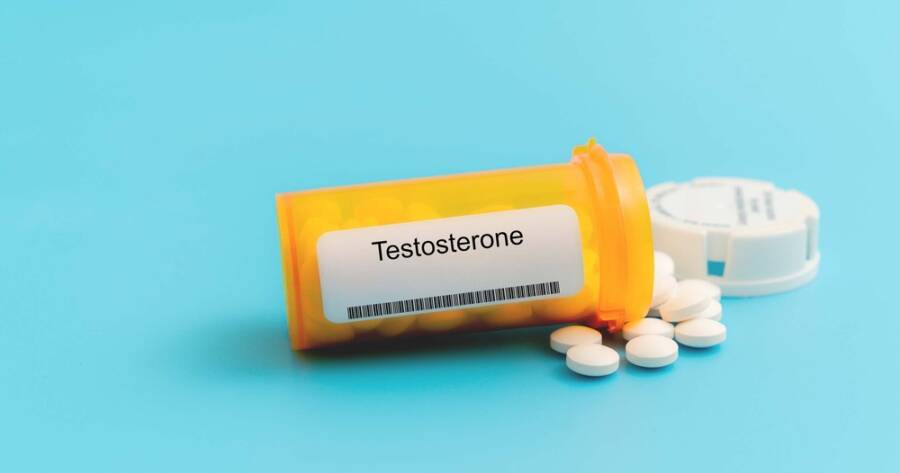Testosterone Replacement Therapy (TRT) plays a pivotal role in addressing low testosterone levels, offering an array of benefits that enhance physical and mental well-being. It’s known to boost energy, improve body composition, and support cardiovascular and bone health. While it can alleviate mood disturbances and enhance cognitive function, TRT does come with potential risks, underscoring the necessity for personalized treatment plans. Understanding these facets aids individuals in making informed decisions about TRT’s suitability for their lifestyle.
The Role of Testosterone Replacement Therapy
Testosterone Replacement Therapy (TRT) has become a crucial intervention for many individuals experiencing low testosterone levels. Beyond restoring hormone balance, TRT offers a myriad of benefits, enhancing both physical and mental well-being. A prominent advantage includes the remarkable improvement in energy levels. Often, low testosterone results in fatigue, making simple daily tasks an exhausting ordeal. With TRT, individuals notice a profound resurgence in energy, akin to their younger years without depending excessively on caffeine or short naps.
Enhanced Body Composition and Strength
One of the most enticing perks of TRT is its positive impact on body composition. It promotes an increase in muscle mass while simultaneously assisting in fat reduction. When paired with strength training, TRT aids in burning excess fat, which often manifests as a “beer belly.” This combination facilitates not only a slimmer physique but also heightened muscle strength and endurance.
Cardiovascular and Bone Health
Cardiovascular health can be significantly impacted by testosterone levels. TRT enhances the production of red blood cells, which plays a pivotal role in reducing risks such as heart attacks and strokes. Studies indicate that maintaining normalized testosterone levels make men substantially less likely to experience these cardiovascular events. Moreover, TRT can bolster bone health, primarily increasing bone density in critical areas like the spine and hips, as noted by its potential to diminish osteoporosis risk.
Mood, Cognitive Function, and Libido Enhancement
Many individuals with low testosterone experience mood disturbances and cognitive challenges. TRT has been linked to mood improvement, reducing depression, and stabilizing mood swings. The therapy is similarly effective in enhancing cognitive abilities, such as verbal memory and spatial reasoning, possibly even reducing the incidence of conditions like Alzheimer’s disease. Not to be overlooked, TRT rejuvenates libido, improving sexual arousal and performance, which can be disproportionately affected by low testosterone levels.
Potential Risks and Considerations
While TRT provides numerous benefits, potential risks come along with therapy. It’s important to be mindful of side effects such as exacerbation of sleep apnea, acne, and an increase in red blood cell production leading to possible blood clots. Other side effects include benign prostatic growth and the enlargement of breasts. Certain studies have hinted at a heightened risk of heart disease associated with testosterone therapy, highlighting the need for thorough discussions with healthcare providers and regular monitoring. Despite these risks, for those suffering from conditions like hypogonadism, TRT remains a valuable treatment option. On the other hand, it hasn’t been clearly recommended for healthy aging men, where lifestyle adjustments like exercise and diet can help sustain testosterone levels naturally.
The Importance of Personalized TRT Plans
When considering TRT, personalization of the treatment plan is crucial. Services such as provided by Focal Point Vitality emphasize tailored treatment plans following comprehensive health evaluations and diagnostic tests. Such personalized approaches promise better outcomes compared to one-size-fits-all methods, ensuring treatment aligns perfectly with individual health goals and conditions. Additional therapies like peptide and HGH therapy may complement TRT’s effects, further aiding in achieving health objectives.
Why You Should Learn More About Testosterone Replacement Therapy Today
The intricacies of Testosterone Replacement Therapy can significantly influence many aspects of life, from energy levels and body composition to cardiovascular health and mental well-being. As with any medical treatment, understanding both the advantages and the potential risks is essential. Engaging with healthcare practitioners and gaining comprehensive insights will equip individuals with the knowledge required to make informed health decisions. By exploring TRT further, one can discover whether this therapy aligns with their health needs and lifestyle, ensuring the best possible outcomes.
Sources
Explore the Major Benefits of TRT
